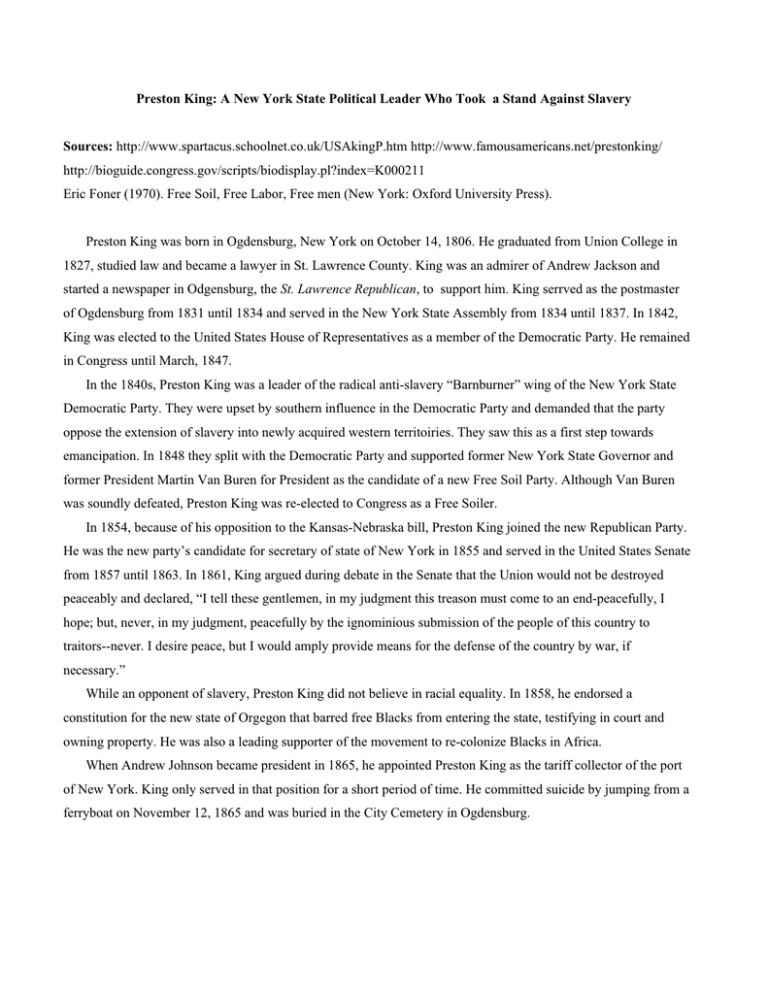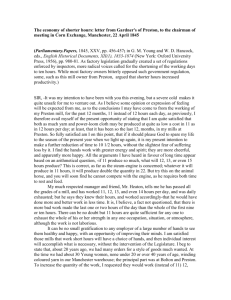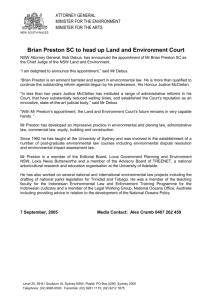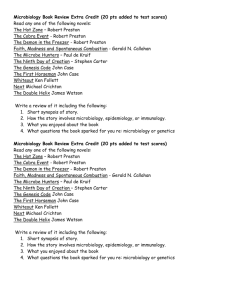Preston King: A New York State Political Leader Who Took ... Sources: Eric Foner (1970). Free Soil, Free Labor, Free men (New...
advertisement

Preston King: A New York State Political Leader Who Took a Stand Against Slavery Sources: http://www.spartacus.schoolnet.co.uk/USAkingP.htm http://www.famousamericans.net/prestonking/ http://bioguide.congress.gov/scripts/biodisplay.pl?index=K000211 Eric Foner (1970). Free Soil, Free Labor, Free men (New York: Oxford University Press). Preston King was born in Ogdensburg, New York on October 14, 1806. He graduated from Union College in 1827, studied law and became a lawyer in St. Lawrence County. King was an admirer of Andrew Jackson and started a newspaper in Odgensburg, the St. Lawrence Republican, to support him. King serrved as the postmaster of Ogdensburg from 1831 until 1834 and served in the New York State Assembly from 1834 until 1837. In 1842, King was elected to the United States House of Representatives as a member of the Democratic Party. He remained in Congress until March, 1847. In the 1840s, Preston King was a leader of the radical anti-slavery “Barnburner” wing of the New York State Democratic Party. They were upset by southern influence in the Democratic Party and demanded that the party oppose the extension of slavery into newly acquired western territoiries. They saw this as a first step towards emancipation. In 1848 they split with the Democratic Party and supported former New York State Governor and former President Martin Van Buren for President as the candidate of a new Free Soil Party. Although Van Buren was soundly defeated, Preston King was re-elected to Congress as a Free Soiler. In 1854, because of his opposition to the Kansas-Nebraska bill, Preston King joined the new Republican Party. He was the new party’s candidate for secretary of state of New York in 1855 and served in the United States Senate from 1857 until 1863. In 1861, King argued during debate in the Senate that the Union would not be destroyed peaceably and declared, “I tell these gentlemen, in my judgment this treason must come to an end-peacefully, I hope; but, never, in my judgment, peacefully by the ignominious submission of the people of this country to traitors--never. I desire peace, but I would amply provide means for the defense of the country by war, if necessary.” While an opponent of slavery, Preston King did not believe in racial equality. In 1858, he endorsed a constitution for the new state of Orgegon that barred free Blacks from entering the state, testifying in court and owning property. He was also a leading supporter of the movement to re-colonize Blacks in Africa. When Andrew Johnson became president in 1865, he appointed Preston King as the tariff collector of the port of New York. King only served in that position for a short period of time. He committed suicide by jumping from a ferryboat on November 12, 1865 and was buried in the City Cemetery in Ogdensburg.






